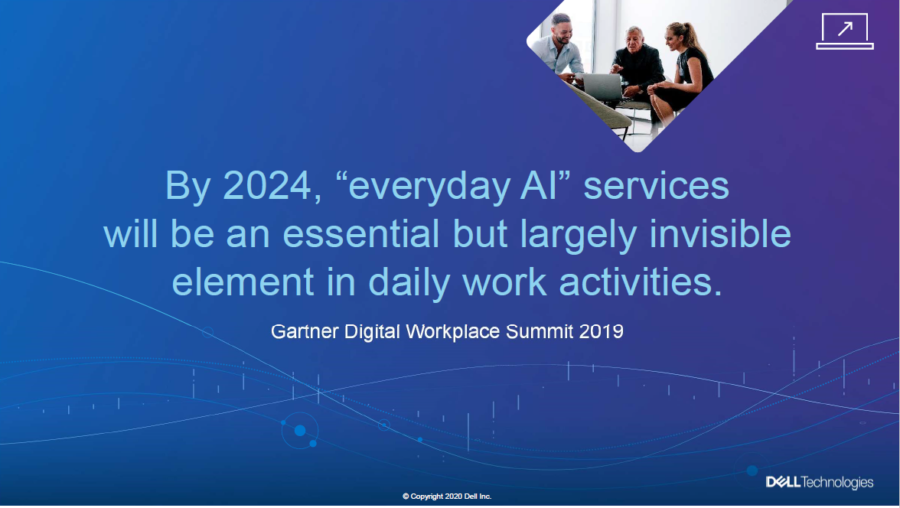Inspirational talks thought leaders and other remarkable professionals, topic based round tables, tips & tricks sessions etc.
During “Networking” events, one of the important parts is getting connected and sharing your ideas and visions with other professionals.
Activities exclusively for our ADM Ambassador community.
Activities for members of the Board or ADM Y-board.
This event is open for everyone to join.
This is a members-only event.
You can only participate when you received a personal invitation.
Live event
6 May, 2020
11:15 - 12:00 h
- Presentation: ENG
- Slides: EN
- Q&A: NL EN FR
ONLINE: Arnaud Bacros: The Future of Work
What will work look like in 2030. Are we still talking about ‘going to work’ or more about ‘doing the job’. And in the end ‘who is doing the job’ … Dell Technologies and the Institute of the Future, a non-profit Silicon Based Institute published the result of their research and Arnaud shared it with us during an online Zoom-call.
Guess it or not, most of the participants were very interested in the subject. Everybody feels we have arrived at an important milestone for what concerns working methods, enhancing efficiency while (re)finding work-life balance… How will we do this?
What is work?
Currently employees from Dell Brussels work for 95% from home. Talking about Dell in general, 30% of the workforce work from home.
Recent studies however show that 5 to 10% of the employees work regularly remote of which 17% once every other week. This is not that much…why?
- Depends of the content of the job
- Lack of trust from employer
- People enjoy social contact, people miss the office
When talking about ‘work’ we are no longer talking about a ‘place’, today it could be anywhere, any time… “Work is not a place, it’s a combination of tasks and a series of skills” says Arnaud Bacros.
Realizing 2030 – The Future of Work
The report by the Intitute of the Future focusses on 3 major facts:
1. New, emerging technologies are shaping the future. There are new ways of performing and collaborating. If you know 85% of the current jobs didn’t exist 10 years ago, we shouldn’t be surprised ‘re-skilling’ is booming.
2. Need for 3 major shifts in HR
- Make use of inclusive talent
- Empower the workforce
- AI fluency 70% of business leaders would welcome people partnering with machines/robots to surpass the human limitations 85% of business leaders predict people will learn new skills in-the-moment as the pace of change accelerates
Human and machine partnerships create optimal teams
Employees will collaborate differently and it will improve workforce productivity
In the future we will need AI ‘trainers’, ‘explainers’, ‘sustainers’
3. Dilemma’s: potential pitfalls:
- algorithmic bias (need for more diversity)
- Digital Skills Gap (need for continuous learning)
- Workers’ rights and protections
Will robots take over our jobs ?

Gartner Digital Workplace Summit 2019
The expression Collaborative AI becomes very powerful.
Humans are capable of doing a job - A robot is capable of doing a task
For a job different skills are needed :
- Repetitive skills (will be heavily automated in the next years -> humans will supervise)
- Quantitative skills (50% automated – Human-Machine partnership)
- Functional skills (people skills will not be automated in the next 20-30 years)
Conclusions
Use new technology to add value to your job. We will become more powerful when embracing various ways of working and collaborating with e.g. robots.
Other useful information can be found on the "related" tab:
- The full recording of the session
- The powerpoint presentation by Arnauds Bacros
- Full Report “Realizing 2030 – The Future of Work” by The Institute of the Future
- The visual harvesting of this session by Kristof Braekeleire
- Other relevant information
|
|
Future Of Work by Arnaud BacrosPresentation |
1.764 MB |
|
|
Realizing 2030 – The Future of WorkFull Report - by The Institute of the Future |
2.262 MB |
|
|
Visual By Kristof Braekeleire |
1.937 MB |
ADM members have access to other (member-restricted) documents after signing in into the website
Other useful information
Receive the Agoria Report “Be the Change – Shaping the Future of Work”
Video Kanaal Z : Meeste Belgen willen na corona nog af en toe van thuis werken (onderzoek BDO)
Interesting reading on this topic (more philosophical ): Hariri : “Sapiens”, “Homo Deus” and “21 Lessons for the 21st Century”